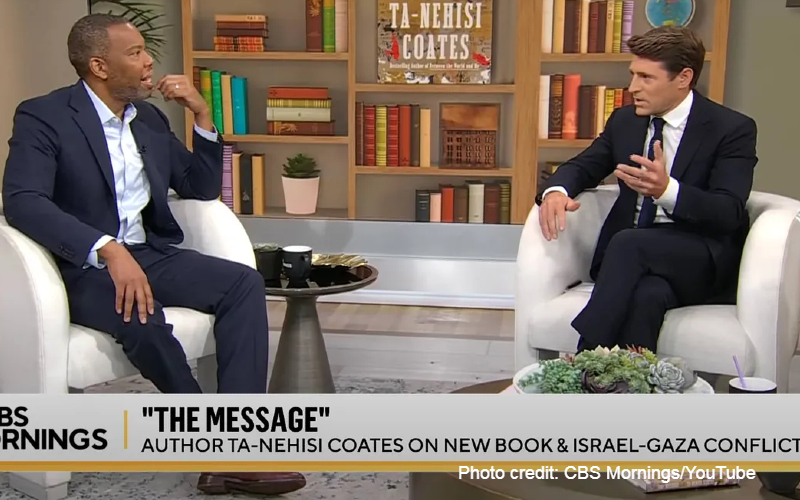The Manhattan Institute's Christopher Rufo started combing through "Smart on Crime: A Career Prosecutor's Plan to Make Us Safer," which Kamala Harris wrote when she was San Francisco's district attorney. What he found was paragraph after paragraph lifted word for word from Wikipedia and other sources without any attribution.
Curtis Houck of Media Research Center says he published side-by-side pictures of the book and its stolen sources. "It's very compelling when you put the two of them together and you see they really lifted straight from Wikipedia," he tells AFN.
It didn't take a day before The New York Times came to her rescue, consulting a plagiarism expert who looked at five examples that the NYT cherrypicked and said it was no big deal. The "lapses," said the expert, "were not serious," said the Times.

"It's comical [and] it is ludicrous to consult a plagiarism expert for something that the American people can look at," Houck reacts. "For The New York Times to try to obfuscate this and try to muddy the waters is just embarrassing. It's really pathetic."
And rather than investigate the possible plagiarism, the Times chose to attack Rufo for discovering it – headlining their article: "Conservative activist seizes on passages from Harris book."
But the Gray Lady wasn't done shielding the Democratic nominee for the White House. In an obvious attempt to distract voters from Harris' latest scandal, two of their opinion columnists were tasked with savaging Melania Trump and her self-titled autobiography she recently released.
Houck is hardly surprised. "Of course, they're going to go right to Melania Trump. I mean, they did this in 2016 as well with her RNC speech," he points out.
One of the many demeaning things the authors of the Melania book review wrote was that the former first lady's book wasn't even a book, labeling it as a "book-adjacent object" – whatever that means.
"You even say coffee table books of pictures are a book, okay? Even if it's just pictures, it's still a book," Houck blasts.
Radio talk-show host Richard Randall doesn't expect The Times' response to the plagiarism allegations to have a big effect in November.

"I know they think they're so influential," he says, referring to The Times. "[But] I think the [reader] has to ask themselves: 'How many people read The New York Times and then consider it to be completely unbiased, and then vote according to it?'"
The Colorado-based radio host argues it would take a huge effort and a long time for the mainstream media to rehabilitate itself after completely trashing its own reputation over the last several years.
"It would take years and years – [like] several election cycles – before people like me would say, 'You know what? Alright. You proved that you were not biased here.'"
10/18/2024 -- Richard Randall's comments added.














